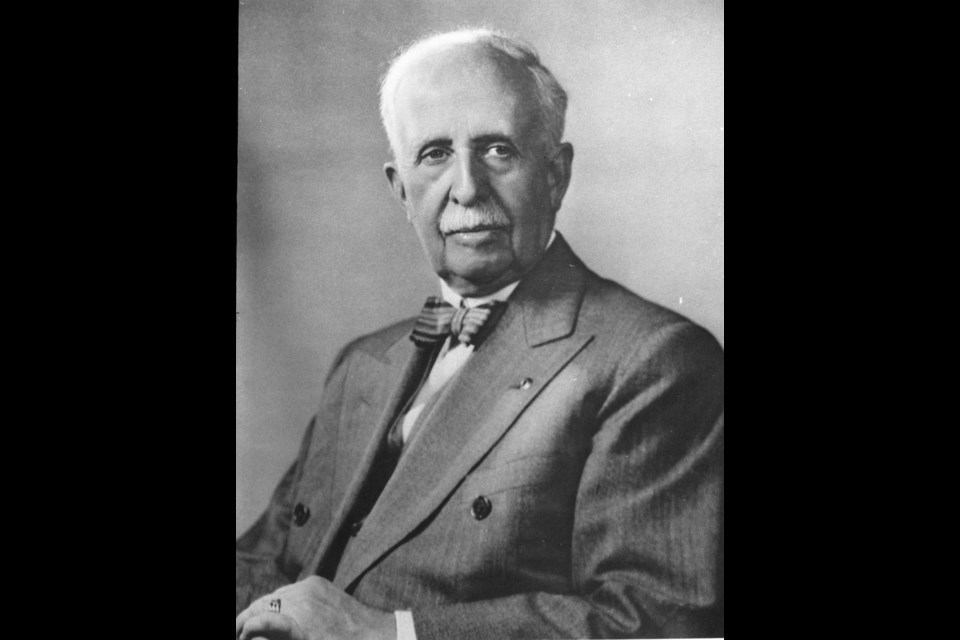Longmont has a strong track record for supporting successful businesses across a range of categories. Nationally known sticker manufacturers, coffee franchises, mapping technology providers and biotech companies were all started within city limits..
This track record is nothing new. As a placard on Main Street points out, one of the largest business success stories took root more than a century ago when mega retailer James Cash Penney came here from Hamilton, Missouri in 1898 and married a Longmont woman.
According to Visit Longmont, Penney uses his $300 life savings to become part owner of a butcher shop at 331 Main street. When he eventually achieved full ownership, he changed the name to J.C. Penney Meat Market.
Erik Mason, curator of research at the Longmont Museum, devoted an entire page to Penney in his book Longmont the first 150 years. The book detailed how the meat market failed due to Penney’s deeply held convictions and lack of willingness to bribe a potential large customer with alcohol.
Broke but undaunted, Penney connected with T. M. Callahan, one of Longmont’s wealthiest businessmen and owner of a chain of dry goods stores called The Golden Rule. Penney learned how Callahan worked and moved up in the business through working at stores in Wyoming. This became the starting point for the nationwide J.C. Penney chain.
Mason elaborated on Penney’s impact. “His story connects to many aspects of Longmont history, from the early questions around temperance, to the entrepreneurial spirit of Main Street businesses, to the emergence of national chain retail. Although his first store was in Wyoming, I think Longmont can be very proud to be the place where he learned the trade that would vault him into national prominence.”
Wyoming is equally proud of the role it played in the earliest days of the national J.C. Penney chain. WyomingHistory.org stated that his success grew out of a simple business philosophy, “find good employees, train them well and sell quality goods at a small markup to keep prices down … eventually the store found niches in Main Streets across America.” Even as the business grew, Penney’s philosophy stayed true.
Penney’s philosophy was the backbone of one of the most important retailers of the Mid-20th century. It became so large that, according to The New York Times, by 1971 it was the fifth largest merchandising company, with sales of $4.1 billion.
The department store maintained its role as part of the Longmont community. Visit Longmont explained that in 1917 “Penney opened his 169th store at 315 Main St.. The store remained in downtown Longmont until 1985 when it moved to the Twin Peaks Mall which closed in 2014.” The store then relocated across the street to 955 S. Hover St. until it closed in 2017, a century after the first Longmont J.C.Penney store opened.
Outside of the business, Penney personally demonstrated a traditional character and an impulse towards philanthropy. WyomingHistory.org stated that “his interests mirrored his upbringing -- religion, education and agriculture. He built a retirement home for ministers in Florida, underwrote vocational guidance programs on the radio, and raised pure bred cattle on his two farms.”By the end of his life, Penney was a resident of New York City. According to his New York Times obituary, he died from injuries suffered in a fall during the Christmas holidays. He was 95. He remained involved with the company in various roles throughout his life, serving as a director until his death.



